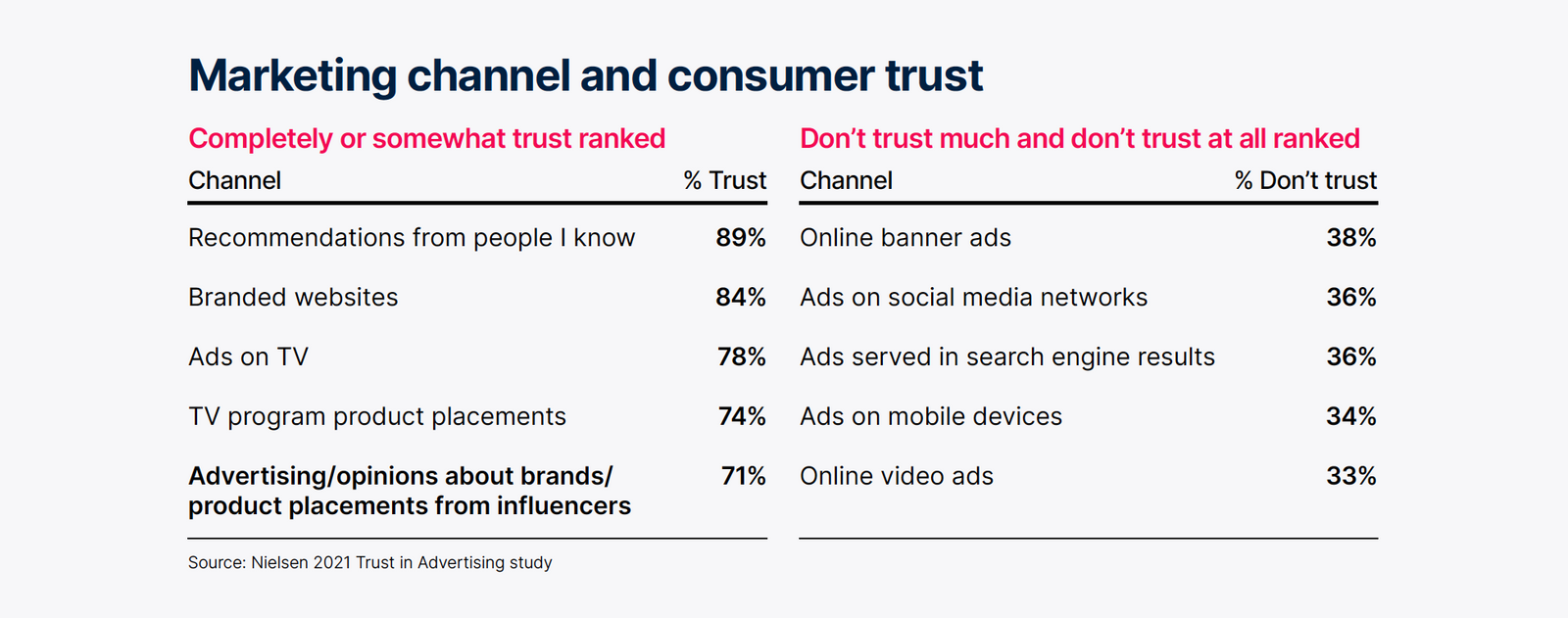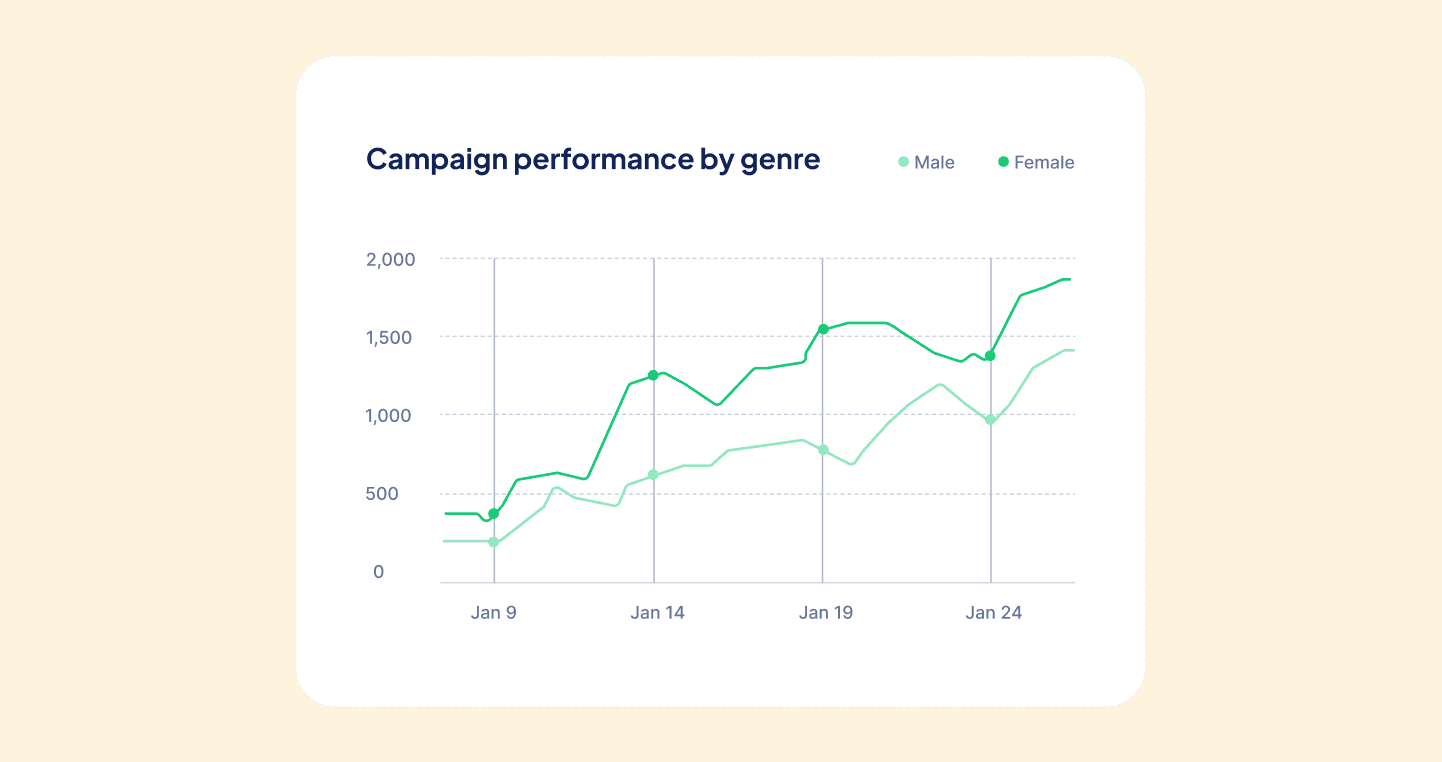Building The Future of Marketing

Our mission at Fuul is to enable trustless partnerships between web3 brands and content creators
Marketing Is Always Evolving
John Wanamaker once quipped,
Half the money I spend on advertising is wasted. The trouble is I don't know which half. John Wanamaker (1838-1922)
I'm sure he would have loved digital marketing, the internet-enabled type of marketing that leverages user data to track, measure, and optimize ad campaigns.
The rise of web technologies such as pixel's and cookies has allowed advertisers to track ad impressions, conversions, and users across different domains. After many years, we've learned that while these technologies have become the essence of digital marketing, they have also introduced concerns about risks to user privacy.
The introduction of privacy-focused policies such as GDPR (General Data Protection Regulation), Apple's ATT (App Tracking Transparency), and cookie deprecations by major web browsers are signs that we're moving towards a new era in digital marketing.
On the other hand, ad costs have skyrocketed, increasing up to 108% in 2021 due to over-saturated ad platforms. Against this backdrop, influencers have emerged as a powerful source of consumer trust and reach.
In fact, Nielsen's 2021 Trust Report revealed that 71% of consumers trust influencer-generated content, including ads, reviews, or product placements. This has made a compelling case for advertisers to dive into influencer and affiliate marketing.

At Fuul, we believe that blockchain technology can create a new digital marketing ecosystem where users own their digital identities, and marketers and creators can develop growth partnerships without intermediaries.
The Promise of Blockchain
Blockchain technology has been making waves in recent years for its potential to revolutionize various industries â including digital marketing. Here are just a few thoughts on what the new marketing stack could look like:
Wallets replace cookies: Wallets1 can be the solution to the cookie armageddon, offering more user privacy while conveying more user information (if there's user opt-in). Users can opt-in to identify themselves and share their wallet address when connecting to any website. In turn, marketers will be able to read their transaction history and assess the following:
- Has this user transacted with us before?
- Have they transacted with any competitors?
- What is the biggest balance they hold in their wallet?
- Are they part of any specific communities?
- And much more.
The blockchain serves as a public, decentralized transaction database: Currently, most companies and ad platforms operate in silos, maintaining their own technological infrastructure and private databases. If advertisers and ad platforms could efficiently record transactions (sales, clicks, impressions, etc.) on a public ledger, all parties involved would have access to the details of each transaction, eliminating any discrepancies or disputes. This approach could foster greater trust, allowing for more transparent and performance-based partnerships.
Smart contracts govern partnerships: Middlemen such as ad networks or agencies often take a significant cut of advertising spending, resulting in higher costs for advertisers and reduced revenue for publishers. They usually add value in the form of fraud prevention, payments, and reporting. This could all be automated through on-chain listeners and smart contracts. Imagine how a brand and a publisher, who doesn't know nor trust each other, could now partner using a smart contract â cutting out the middlemen.
Enhanced payments infrastructure: Crypto payments can potentially offer faster and cheaper transactions than traditional credit card payments. Moreover, blockchain technology enables secure, irreversible transactions, eliminating costs associated with chargebacks. Blockchain-based payments also offer a borderless solution, allowing payments to be made across borders without intermediaries. This creates an opportunity for businesses to expand globally with ease, further reducing costs and streamlining transactions.
Our Mission at Fuul
While we recognize that there are challenges to overcome, such as scalability and adoption, we believe that the potential benefits of blockchain in digital marketing are too significant to ignore.
Our mission at Fuul is to enable trustless and efficient partnerships between web3 brands and creators.
We invite web3 marketers and content creators to join us on this journey and help shape the future of digital marketing. Follow us on Twitter @fuul_xyz.
1 A wallet is a software application that allows users to store, send, receive, and manage digital assets like cryptocurrencies and interact with blockchain networks and decentralized applications (DApps).
Emphasize your product's unique features or benefits to differentiate it from competitors
In nec dictum adipiscing pharetra enim etiam scelerisque dolor purus ipsum egestas cursus vulputate arcu egestas ut eu sed mollis consectetur mattis pharetra curabitur et maecenas in mattis fames consectetur ipsum quis risus mauris aliquam ornare nisl purus at ipsum nulla accumsan consectetur vestibulum suspendisse aliquam condimentum scelerisque lacinia pellentesque vestibulum condimentum turpis ligula pharetra dictum sapien facilisis sapien at sagittis et cursus congue.
- Pharetra curabitur et maecenas in mattis fames consectetur ipsum quis risus.
- Justo urna nisi auctor consequat consectetur dolor lectus blandit.
- Eget egestas volutpat lacinia vestibulum vitae mattis hendrerit.
- Ornare elit odio tellus orci bibendum dictum id sem congue enim amet diam.
Incorporate statistics or specific numbers to highlight the effectiveness or popularity of your offering
Convallis pellentesque ullamcorper sapien sed tristique fermentum proin amet quam tincidunt feugiat vitae neque quisque odio ut pellentesque ac mauris eget lectus. Pretium arcu turpis lacus sapien sit at eu sapien duis magna nunc nibh nam non ut nibh ultrices ultrices elementum egestas enim nisl sed cursus pellentesque sit dignissim enim euismod sit et convallis sed pelis viverra quam at nisl sit pharetra enim nisl nec vestibulum posuere in volutpat sed blandit neque risus.

Use time-sensitive language to encourage immediate action, such as "Limited Time Offer
Feugiat vitae neque quisque odio ut pellentesque ac mauris eget lectus. Pretium arcu turpis lacus sapien sit at eu sapien duis magna nunc nibh nam non ut nibh ultrices ultrices elementum egestas enim nisl sed cursus pellentesque sit dignissim enim euismod sit et convallis sed pelis viverra quam at nisl sit pharetra enim nisl nec vestibulum posuere in volutpat sed blandit neque risus.
- Pharetra curabitur et maecenas in mattis fames consectetur ipsum quis risus.
- Justo urna nisi auctor consequat consectetur dolor lectus blandit.
- Eget egestas volutpat lacinia vestibulum vitae mattis hendrerit.
- Ornare elit odio tellus orci bibendum dictum id sem congue enim amet diam.
Address customer pain points directly by showing how your product solves their problems
Feugiat vitae neque quisque odio ut pellentesque ac mauris eget lectus. Pretium arcu turpis lacus sapien sit at eu sapien duis magna nunc nibh nam non ut nibh ultrices ultrices elementum egestas enim nisl sed cursus pellentesque sit dignissim enim euismod sit et convallis sed pelis viverra quam at nisl sit pharetra enim nisl nec vestibulum posuere in volutpat sed blandit neque risus.
Vel etiam vel amet aenean eget in habitasse nunc duis tellus sem turpis risus aliquam ac volutpat tellus eu faucibus ullamcorper.
Tailor titles to your ideal customer segment using phrases like "Designed for Busy Professionals
Sed pretium id nibh id sit felis vitae volutpat volutpat adipiscing at sodales neque lectus mi phasellus commodo at elit suspendisse ornare faucibus lectus purus viverra in nec aliquet commodo et sed sed nisi tempor mi pellentesque arcu viverra pretium duis enim vulputate dignissim etiam ultrices vitae neque urna proin nibh diam turpis augue lacus.

.png)
.png)